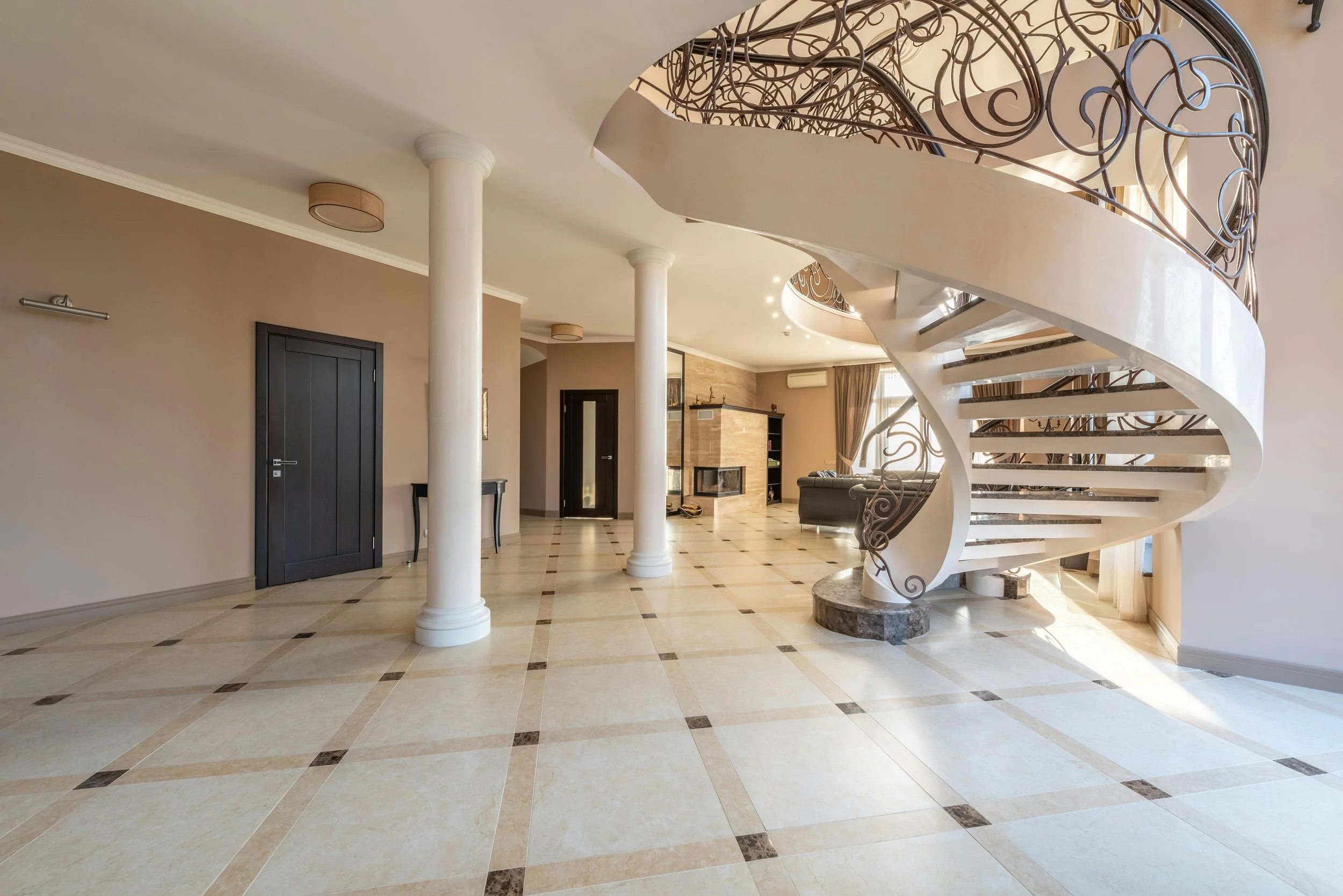In commercial settings such as retail stores, restaurants, hotels, medical offices, and corporate buildings, flooring plays a crucial role in both functionality and appearance. Every day, these spaces endure heavy foot traffic, furniture movement, occasional spills, and constant cleaning. Choosing the wrong flooring can lead to early wear, high maintenance costs, and an unprofessional look.
That’s why tile flooring remains one of the most trusted solutions for high-traffic areas. With its proven track record for durability, low upkeep, and design flexibility, tile has been the go-to choice for countless businesses looking for a balance between style and strength.
This guide breaks down the benefits of tile flooring that make it ideal for busy commercial environments—and why it might be the best investment for your property.
1. Exceptional Durability
Tile is widely recognized for its ability to stand the test of time in high-demand spaces.
Why Durability Matters for Businesses
In commercial spaces, flooring is not just about appearance—it’s a functional asset. A floor that scratches, dents, or wears down quickly can create safety hazards, increase maintenance costs, and hurt your professional image. The durability of tile ensures that your investment continues to perform and look great for many years, even under constant use.
How Tile Stands Up to Wear and Tear
Ceramic, porcelain, and natural stone tiles are all manufactured or quarried to be dense and tough. They resist cracks, fading, and warping better than many other flooring materials. For example, porcelain tile is fired at extremely high temperatures, making it one of the hardest and most resilient flooring materials available for commercial spaces.
2. Easy Maintenance and Cleaning
In a fast-paced business environment, easy upkeep is a major advantage.
Minimal Effort, Maximum Results
Unlike carpets that require deep cleaning or hardwood floors that need refinishing, tile flooring only needs regular sweeping and occasional mopping to maintain its appearance. This saves time for cleaning crews and reduces overall maintenance costs.
Stain and Spill Resistance
The non-porous surface of most tiles means liquids stay on top rather than seeping in. In restaurants, cafes, or healthcare facilities where spills are common, this property is a lifesaver. A quick wipe-down is often all it takes to restore the floor’s cleanliness.
3. Wide Range of Design Options
Tile flooring offers limitless possibilities when it comes to style.
Aligning Flooring with Your Brand Image
Your flooring can help tell your brand’s story. Whether you want a sleek, modern look or a warm, inviting atmosphere, tiles come in a wide array of colors, patterns, textures, and finishes to match your vision.
Custom Patterns and Layouts
With professional installation, businesses can incorporate custom designs, logos, or accent borders directly into their tile layout. This adds a unique branding touch to your interior that clients and customers will remember.
4. Cost-Effective Over the Long Term
Tile can be a bigger upfront investment than other flooring options, but its long-term benefits outweigh the initial cost.
Fewer Replacements and Repairs
Because tile is so durable, it often lasts decades without needing replacement. This translates to significant savings over the years compared to flooring materials that wear out quickly.
Energy Efficiency Bonus
Tile naturally stays cooler in the summer months, which can help reduce air-conditioning costs—especially in warmer climates.
5. Perfect for High-Moisture Environments
Moisture is one of the leading causes of floor damage, but tile handles it with ease.
Water Resistance That Lasts
In areas like commercial kitchens, entryways, restrooms, and lobbies, water exposure is inevitable. Tile’s water resistance ensures it won’t swell, buckle, or rot, even after years of use.
Seamless Indoor-to-Outdoor Transition
Many businesses extend tile to outdoor patios, walkways, or entry steps. This not only creates a consistent look but also maintains durability across different environments.
6. Safety and Slip Resistance
Safety is critical in public and employee areas.
Slip-Resistant Finishes
Specially textured or matte-finished tiles provide extra grip underfoot, reducing the risk of slips and falls, especially in wet conditions.
Meeting Safety Standards
For many industries, maintaining a safe floor surface is more than a choice—it’s a requirement. Slip-resistant tile can help meet compliance regulations while protecting staff and visitors.
7. Boosts Property Value
High-quality tile flooring can make your property more attractive to future buyers or tenants.
Professional First Impressions
A well-installed tile floor speaks volumes about your attention to detail and commitment to quality, which can leave a lasting impression on clients and partners.
Long-Term Investment Appeal
Prospective buyers appreciate low-maintenance, long-lasting flooring, making tile an added selling point.
Conclusion
When you choose tile flooring for high-traffic commercial areas, you’re not just picking a surface—you’re investing in a solution that blends style, strength, and practicality. From exceptional durability and minimal maintenance to limitless design options, tile offers long-term value that few other flooring materials can match.
If you’re ready to upgrade your commercial space with the proven benefits of tile, explore our tile flooring services or contact our team to schedule a consultation.
Frequently Asked Questions (FAQ)
Q1: How long can commercial tile flooring last?
With proper care, commercial tile floors can last anywhere from 20 to 50 years or more.
Q2: What is the best type of tile for high-traffic areas?
Porcelain tile is often the top choice due to its density, durability, and water resistance.
Q3: Can tile be repaired if it cracks?
Yes—damaged tiles can be replaced individually without redoing the entire floor.
Q4: Does tile flooring require special cleaning products?
Most tiles can be cleaned with mild soap and water; harsh chemicals are rarely necessary.
Q5: Is tile slippery when wet?
Smooth, glossy tiles can be slippery, but textured and slip-resistant tiles are available for safety.




